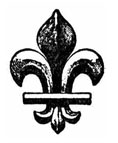
The Famous in France: Why They Believe
LETTERS FROM EUROPE
Briskly selling in France now is a collection of 137 testimonies (three of them cartoons) under the title, Pourquoi Croyez-vous en Dieu? (Why Do You Believe in God?). The publisher is Criterion (Paris) and the editor, François Bluche, a distinguished historian whose biography of Louis XIV has been translated into English and Russian.
Normally, books of testimonies elicit about as much public interest as sermon collections (just below works on the building of bird baths). What makes this anthology different is the surprising list of its contributors — including famous names few would have associated with Christian faith. In effect, a number of very famous Frenchmen have blown their cover and can now be identified as committed Christians. The list includes the exceedingly popular cartoonists Jacques Faizant and Pierre de Montvallon (who draws under his acronym “Piero”), prolific writer Jean Raspail, Sorbonne historian François-Georges Dreyfus, and several members of the Institute, such as historian of ideas Francis Rapp — and Louis Pauwels, whose entire career has been associated with the occult and New Age vagaries.
The volume also gives the reader familiar Christian spokesmen: theologian Oscar Cullman; retired Bishop of Strasbourg Léon Elchinger; the great lay Catholic theologian and polymath Jean Guitton; and heroic scientific defender of the rights of the unborn, Professor Jérôme Lejeune, who died at about the time his testimony was published. The editor casts his net widely: Most of the contributors are Roman Catholics (as one would expect in a French anthology), but Lutherans such as Cullman and Dreyfus, and Henri Blocher, Dean of the Free Faculty of Evangelical Theology at Vaux-sur-Seine, are also represented.
Let us examine some of the most striking of these testimonies, and then try to draw some lessons.
You May Also Enjoy
Answer: when he is a Messianic Jew. According to Israeli law, a Jew ceases to…
Why is it so difficult for Christians to comprehend that God's Word stands in judgment equally over both change-for-change's-sake and fustiness?
Science and Christian faith agree that the universe has overall structure but an open future, and prayer is a prime factor in fine-tuning that future.

